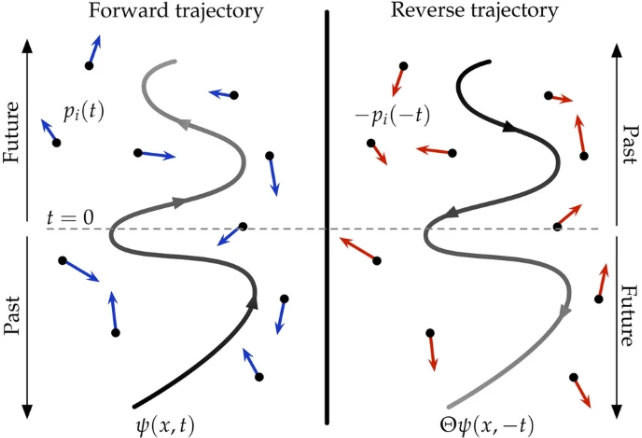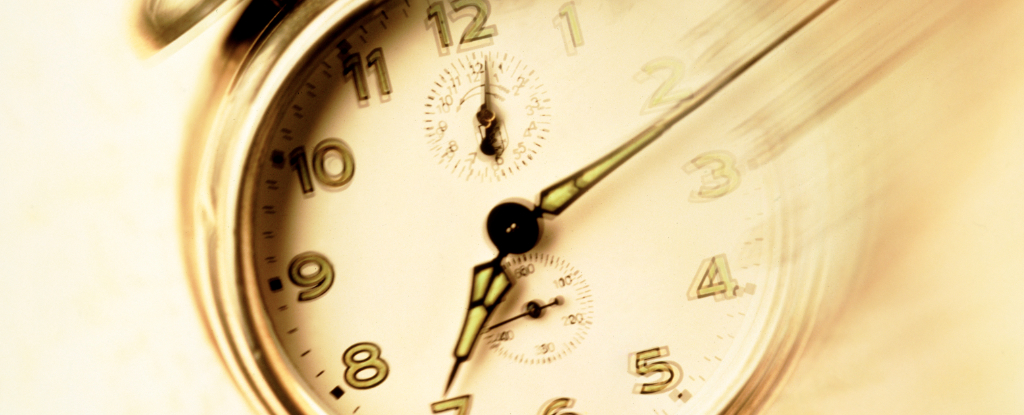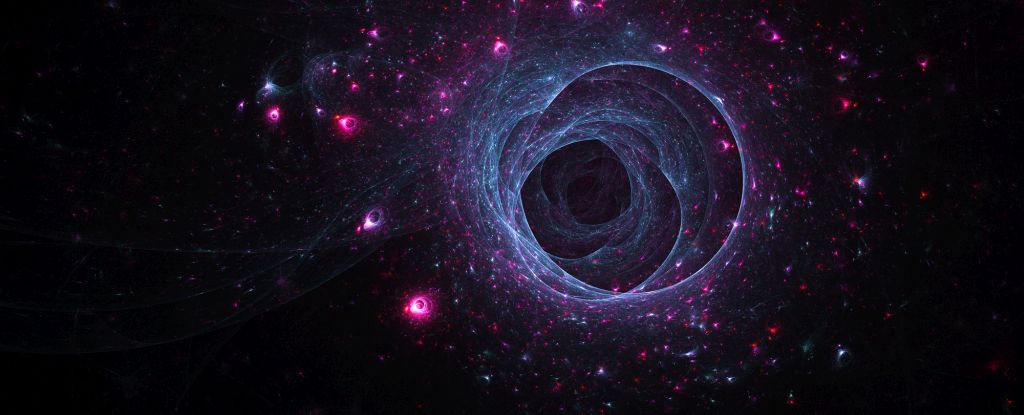No matter how hard we try, we can’t remember tomorrow. And physicists have no idea why.
In hope of discovering the source of time’s river, University of Surrey physicists Thomas Guff, Chintalpati Umashankar Shastry, and Andrea Rocco looked for signs of its existence in the equivalent of a hot quantum bathtub beneath the infinite expanse of eternity.
Needless to say they didn’t find what they were looking for, instead confirming time flows backward just as easily as it does forward in the buzz of quantum mechanics. Yet the lessons learned could someday reveal why physics insists on the existence of history.
To use the correct jargon, physics is by and large symmetrical when it comes to time. We might never see an egg uncrack or an oak revert to an acorn, but when most processes are stripped down to their fundamental laws, there’s little dictating which end of an equation must face the past and which the future.
It’s not like there’s a shortage of places to hunt for clues on why the past is locked in place. Cosmologists have looked at how the Universe expands from a low-to-high entropy state, for example. Quantum physicists have wondered whether the ever-widening net of a particle’s entanglement with the environment might be involved. Until now, nothing has stood out as a clear explanation for why the dimension of time has such cohesion.
Guff, Shastry, and Rocco wondered if quantum equations of motion might yet hide a means of making a return to a past state impossible, acting as a kind of ratchet that ensures a system’s laws don’t slip backward.
They used a mathematical approximation known as a Markov chain to describe a simplified model of heated particles jostling in an open container. Applying Markovian dynamics, in which the system has no memory beyond the present, each new quantum state within the system would depend on just a single previous state, which could mean a one-way trip to tomorrow-land or an oscillation that just as easily takes particles backward.
No matter where the team looked in their bath’s equations, they could find no signs that time-reversal symmetry was at odds with how quantum activity unfolded, implying the ‘memory’ of the Markovian system held no preference for a past or future.

“Our findings suggest that while our common experience tells us that time only moves one way, we are just unaware that the opposite direction would have been equally possible,” says Rocco.
If time can jiggle back and forth on a quantum level, it certainly doesn’t on the scale of physics we experience. An actual hot bath out beneath the stars is guaranteed to cool quickly as energy flows out into the ever-expanding cosmos.
The trio insist their findings don’t contradict this law of thermodynamics in any way. Some laws of physics are truly irreversible, after all. Yet flipping the arrow of time on a quantum scale would still have seen a steady cooling occur, suggesting there’s nothing overly special about one direction over the other on a quantum scale when it comes to thermodynamics.
If so, our collective experience of time’s one-way street just might be balanced on the other side of the Big Bang by a second avenue, one that is also carried away by cosmic expansion and increasing energy from a quantum starting point that remembers the future as easily as it does the past.
This research was published in Scientific Reports.





